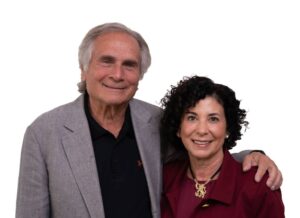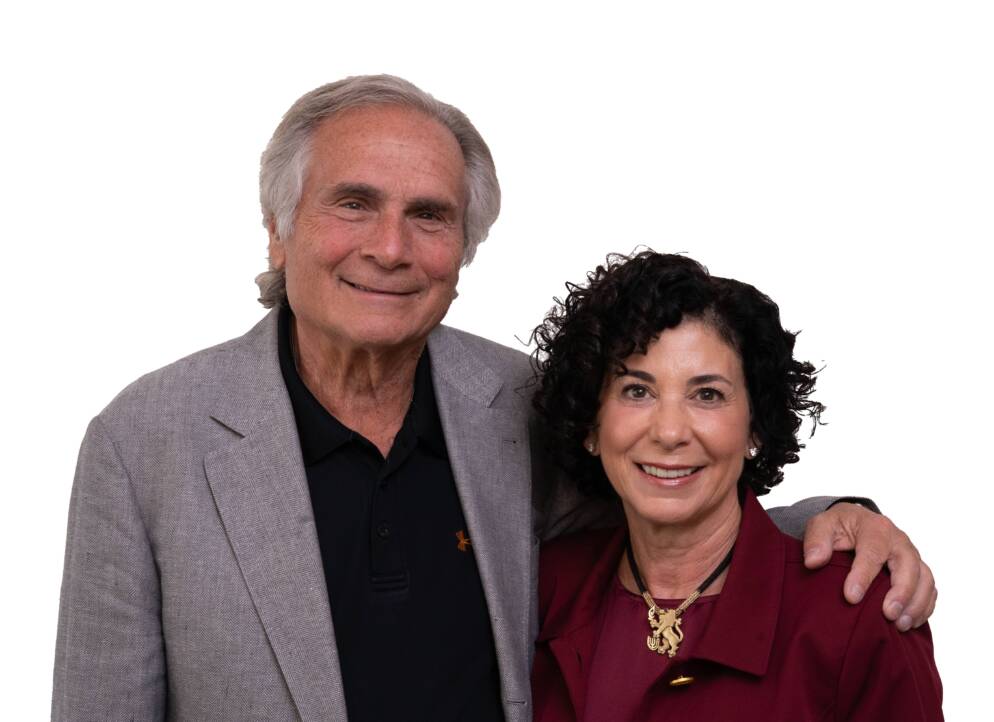 Mark Fishman and Michele Levin (Photo courtesy of the Jewish Federation of Greater Philadelphia)
Mark Fishman and Michele Levin (Photo courtesy of the Jewish Federation of Greater Philadelphia)
The previous board chair of the Jewish Federation of Greater Philadelphia, Michael Markman, played a key role in leading the organization from September 2023 to this August, helping the region’s Jewish community through the start of some very tumultuous times.
Starting Sept. 1, Mark Fishman and Michele Levin, both members of Har Zion Temple, began serving as co-chairs and are sharing the lay leadership role, and they each said that they wouldn’t want it any other way.
“When you have two people, obviously everyone doesn’t have to go to every single event, and I think that we can just accomplish a lot more as a twosome than we could individually. So that was a huge plus,” Fishman said.
Levin agreed.
“I definitely saw it that way,” she said. “I like having a partner to discuss things with and maybe come to the table with different opinions, and I think we both bring different skill sets that will complement each other and make the job more doable.”
Levin said that Fishman brings a unique ability to galvanize fundraising, while she has an extensive background in leading boards.
“He really knows how to get people motivated to give,” Levin said. “We’re an organization that needs to raise money, so I need a partner like Mark.”
Levin has previously served as president of MSL Consulting Group, president of the board of directors at Jack M. Barrack Hebrew Academy and chair of the Federation’s Committee for Israel and Global Strategy.
Fishman comes in with experience as the former CEO and chairman of Fishman and Tobin Inc., a clothing manufacturing company, as well as co-chair of the Jewish Community Foundation and a member of the Jewish Federation’s Board of Directors Campaign Cabinet, New Prospective Donor Committee, and mentor for the Sharon and Joseph Kestenbaum Legacy Philanthropy Program.
As for what will be different during their tenure, Fishman said that, in the past, the organization relied largely on lay fundraising within the community, whereas now the right move is to shift to include more professional-based fundraising, too.
“I think we have to be talking and listening more to our donors, and basically realize that, [even though] when I was younger people gave to the Federation because they’re Jewish, today you can give to a lot of different organizations and they’re very Jewish,” he said. “We have to be able to go to our donors with presentations of different things that are going to be meaningful to them specifically.”
He gave the example of approaching a donor who is interested in Jewish education with a proposal specifically aimed at that interest. He added that just because members of the board themselves may not be the ones making fundraising pitches moving forward, there is a balance to strike in terms of being personal and professional.
Levin said that one way the Federation can expand its reach is by working with its peers more, too.
“One of the things that I’d like to work on this fall is relationships with the other Jewish agencies and organizations in the area, and seeing more ways that we can all work together to just build our Jewish community better and better,” she said.
Fishman said, while the most important thing that the board can do is to help raise money, they will also continue to be involved in hiring, evaluating and shaping the Federation’s vision moving forward. Fishman added that the Federation does a good job already of representing the diverse nature of Jewish life in Philadelphia, but that that goal is an essential part of how he and Levin want to move forward, too.
“We really have to have the Federation represent the entire Jewish community. That means Orthodox, modern Orthodox, Reform, Conservative, nonaffiliated, intermarried. … We have to represent the entire community and continue to help to bring the entire community together as one, and we have to encourage discourse amongst those different groups,” Fishman said.
